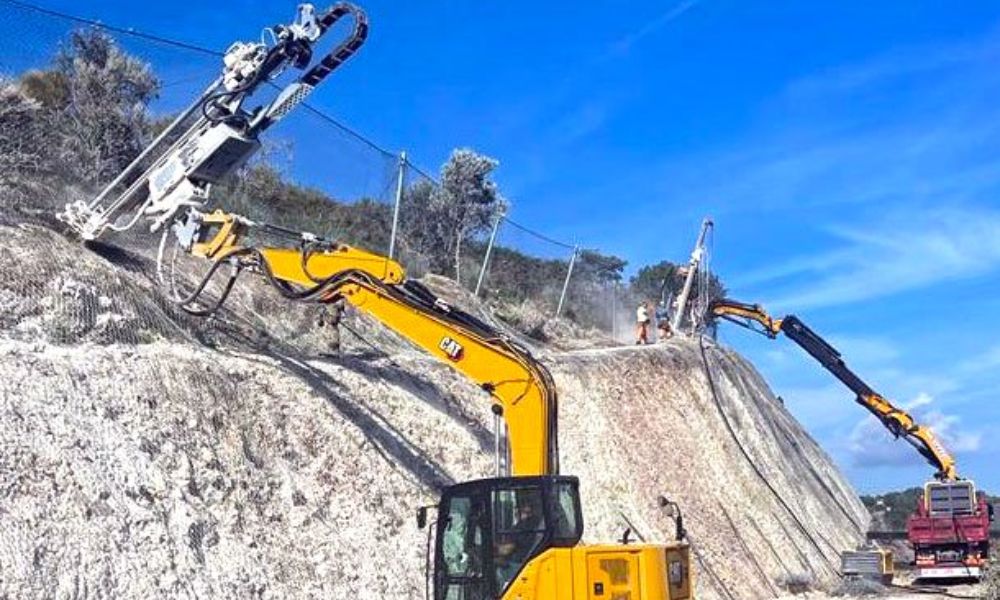- 970-858-3799
- alex@lcvdrillparts.com
- Mon - Fri: 8:00 am - 5:00 pm EST
Choosing the Right Rock Drilling Equipment for Your Project

As a drilling contractor, you’re faced with deciding which type of drill and rig to use for every job. Here’s a refresher to help you make an informed decision when trying to choose the right rock drilling equipment for your project.
Rotary Head Rock Drills
As the name implies, rotary rock drills use rotary action to drill into the rock. Force is applied at the drill bit as it rotates, to grind and crush rock. Rotary drills use compressed air to blow the slag away from the bottom of the hole along the space between the drill pipe and the wall of the hole to the outside.
Used for soil nails, auguring, fencing, foundation stabilization, hillside drilling, and larger holes of three to six inches, these types of drills are quite versatile.
Top Hammer Rock Drills
Top hammer rock drills use pneumatic or hydraulic impact energy applied to the top of the drill string to break the rock by applying percussive force to a rotary drill bit attached to the bottom of the drill string. Top hammer drills are typically used for drilling and blasting, rock fracturing, relief holes for breakers, and pilot holes for larger-diameter holes.
The deeper the hole, the more attenuated the force applied to the drill string at the bottom. That’s why top hammer drills are more effective at shallower depths. Top hammer drills are used for small-diameter boreholes, placing tie rods in rock, or mineral exploration.
Tips for Choosing the Right Rock Drilling Equipment for Your Project
There are several important factors to consider when you’re selecting rock drilling equipment. These include:
Safety and environmental regulations: Check to see if you are permitted to use hydraulic equipment, which involves hydraulic oil, or if environmental concerns dictate that you must use pneumatic (air-powered) drills.
Equipment size and rig: Consider how you’ll need to mount your drill at the site. Do you need mobility? Are you drilling on a slope, a vertical rock wall, or straight down? What type of rig do you need: skid steer, excavator or mini excavator, wagon, or truck-mounted configuration? Will you need a separate compressor, or do you want an all-in-one unit?
Hole diameter, depth, and aggregate: What diameter hole must you drill? How deep and through what type of rock, soil, or aggregate will you be drilling? Each of these considerations affects your choice of rock drilling equipment.
Price: Of course, your budget is always a consideration. Carolina Drill Supply can supply budget-friendly rock drilling equipment for purchase or rent that will perform with precision and efficiency. Contact Carolina Drill Supply to discuss your rock drilling equipment needs today.